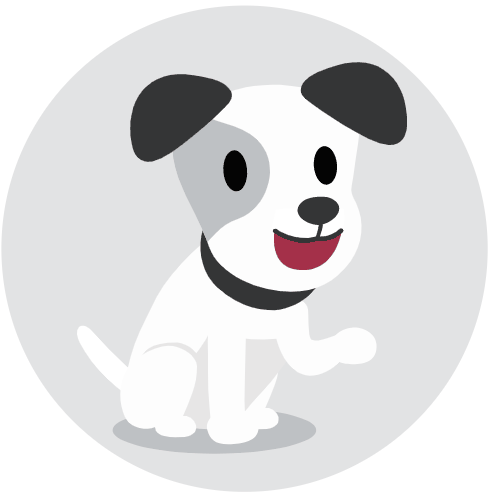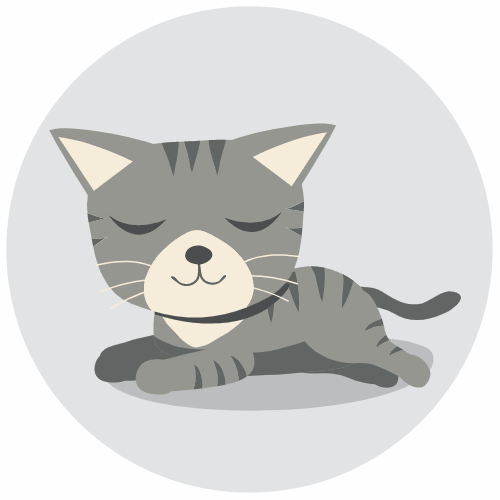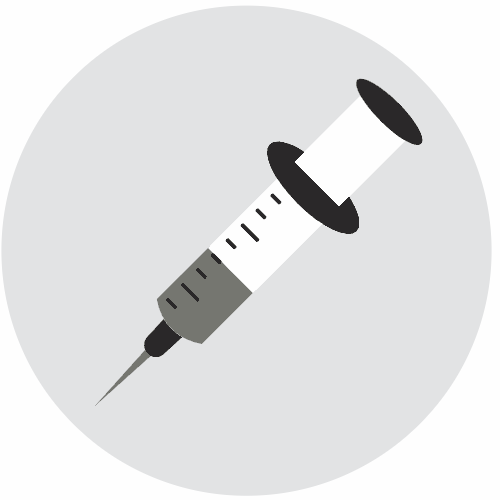Our veterinarians are dedicated to providing puppies and kittens with comprehensive, compassionate care to optimize their health and prepare them for a healthy life. We customize puppy and kitten visits to ensure they are properly immunized and make sure they are growing properly. Our veterinarians recommend a series of three exams, each about three to four weeks apart, though this may differ based on your pet’s age at their initial visit.
During these exams, a series of vaccinations will be administered, and a full physical exam will be performed each time. Your veterinarian will document your pet’s growth to make sure they are developing normally and building their immunity to life-threatening diseases.
Bringing home a new puppy or kitten can be one of the most rewarding, yet challenging experiences. We ae here not only to ensure your pet’s health, but also provide you with guidance and answer any questions you may have. We suggest bringing your new furry family member to Dix Animal Hospital as soon as possible to establish their care, create a customized plan for their future health, and develop a relationship and familiarity with our team and facility.
Exam/Vaccination Plan
EXAM ONE
Frequently, we will see puppies and kittens for their first visit when they are around eight weeks old, but as long as your pet is younger than one year old, their initial exam is considered “exam one” in their series.
Kitten Plan
- FVRCP vaccine #1 (Feline Viral Rhinotracheitis, Calicivirus, Panleukopenia)
- Deworming #1
Puppy Plan
- DA2PP vaccine #1 (Distemper, Adenovirus, Parvovirus, Parainfluenza)
- Deworming #1
EXAM TWO
A recheck exam will be performed around twelve weeks of age.
Kitten Plan
- FVRCP vaccine #2 (Feline Viral Rhinotracheitis, Calicivirus, Panleukopenia)
- Deworming #2
Puppy Plan
- DA2PP vaccine #2 (Distemper, Adenovirus, Parvovirus, Parainfluenza)
- Deworming #2
- Leptospirosis vaccine #1
- Bordetella vaccine #1
EXAM THREE
A final exam for puppies and kittens will be performed at sixteen weeks of age. Your veterinarian will evaluate their growth and health, finalize any immunizations, and discuss the next steps for health care as your pet ages into adulthood.
Kitten Plan
- FVRCP vaccine #3 (Feline Viral Rhinotracheitis, Calicivirus, Panleukopenia)
- FeLV vaccine (Feline Leukemia)
- Rabies vaccine
Puppy Plan
- DA2PP vaccine #3 (Distemper, Adenovirus, Parvovirus, Parainfluenza)
- Leptospirosis vaccine #2
- Bordetella vaccine #2
- Rabies vaccine

Spaying & Neutering
Your veterinarian will recommend spaying or neutering your pet at the appropriate age as there are a number of health and behavioral benefits of alteration. This conversation typically takes place during the final exam for puppies and kittens, but we are more than happy to answer questions you may have at any time.
HOW DO I SET A POTTY TRAINING SCHEDULE?
- First thing in the morning
- Last thing at night
- After spending time in a crate
- Upon waking up from a nap
- After eating or drinking
- Time between potty brakes
should be no more than 2-4 hours
HOW DO I CRATE TRAIN MY PUPPY?
- Dogs like clean “home” areas and are less likely to have accidents
- Place crate near exterior door for quick relief
- The crate should be big enough for your puppy to stand up, turn around, and lay down
WHEN SHOULD I REINFORCE GOOD BEHAVIOR?
- Don’t scold your puppy for having an accident
- Praise them for doing the right thing
- Reward them with treats, pats, and attention
Puppies are fun, but they can also be quite a handful! Still, if you put the time in now to train them and care for them properly, you will both be much happier in the long run. Here are some puppy care tips to make their life (and yours) easier.
Use a Crate
We recommend using a crate for house breaking your puppy. The crate should be big enough for the puppy to stand up, turn around, and lie down in. If the crate is too big, the puppy will be able to pee and poop on one side, and sleep on the other. The idea is to make it uncomfortable for them if they do have an accident. If they have to lie in it, they won’t be happy.
Avoid Using Pee Pads
If you aren’t going to want to use pee pads forever, don’t start with them. It is better to take your puppy out in your own backyard. Keep your puppy on a leash and take them to the same spot every time. Use the same words and commands every time, especially making sure to praise and reward them like crazy when they do go.
Habits Stick
Puppies are creatures of habit, and they have to go out frequently. As soon as your puppy wakes up, they should be taken outside. If they don’t pee, take them back inside and keep them in your sight.
Supervise Your Puppy
Your puppy must stay in the room you are in. You can close the door, use a gate to block the doorway, or keep him on a leash near you, but he must always be near you. If you plan to leave the room for more than a minute (literally), your puppy should come with you on a leash or go into his safe confinement area. This will not only prevent mistakes from happening without your knowledge, but it will also keep him safe as well.
Watch for signs of impending urination or defecation. These include wandering away from you, sniffing the floor, restlessness, whining, panting, and circling. Then take your puppy out every 5 or 10 minutes until he goes.
Watch for “Go” Signs
Certain things frequently bring on a need for your puppy to go, and they include chewing heavily on a toy, eating, ten minutes or so after a big drink, waking up from a nap, or after heavy play. When you see any of these signs, take your puppy outside and try again! It’s a process! However, your puppy will learn quickly as long as you are consistent, and you will both get into a routine.
Never Use the Crate to Punish Your Puppy
The crate is intended to help your puppy get acclimated to your home and a routine schedule. It also helps when you need to keep an eye on your puppy, and you want to prevent them from eating or chewing on things they shouldn’t. It’s normal for puppies to spend a lot of time in their crate during the day, but make sure you never use the crate as a form of punishment for your puppy.
Other Puppy Tips
Other tips we recommend:
- Play with your puppy’s paws, teeth and ears a lot. This gets them used to being handled. That way when they come here or go for grooming they will be used to it. We will show you how to clean your puppy’s ears and clip its nails. Clipping nails can be tricky, and we will always be available to do that for you.
- We will also go over teeth brushing, so you can make it a regular part of your pet’s routine. Brushing is important for preventing tartar buildup and dental disease.
- Socialize your puppy as much as you can. Just be careful! Your puppy is likely not fully vaccinated, so we don’t recommend taking them to dog parks or pet stores, but we DO recommend letting your puppy play with dogs you know that are healthy and vaccinated.
- Wait about two weeks before arranging a play date for your puppy in case they get a cold, or until we get the results of their fecal analysis.
- Make sure to bring your puppy with you to experience new situations and people so they feel comfortable with them.
How do I get my puppy to stop bad behavior?
WHAT CAN MY PUPPY CHEW ON?
- Chewing is a calming mechanism for puppies
- Keep chewing toys around the house; when they start to chew on toys instead of household objects, give them praise
HOW DO I STOP MY PUPPY FROM BARKING?
- Scolding your puppy when they bark can make it worse; instead, ignore barking and praise quiet
- Training your dog to sit helps them fight impulsive barking when they want something
HOW DO I STOP MY PUPPY FROM BEGGING AT THE TABLE?
- Feed them first before you eat
- Create a cozy “go-to” spot near the table where they can be comfortable
- Praise them with treats when they don’t beg
How do I feed my puppy?
HOW OFTEN DO I FEED MY PUPPY?
- 6-12 weeks: 4x a day
- 3-6 months: 3x a day
- 6-12 months: 2x a day
- After a year: 2 half portions a day
- Watch your puppy to gauge if they are eating healthy
WHAT FOOD SHOULD I FEED MY PUPPY?
- Look for AAFCO guidelines
- Look for age and health specific formulas
- Ask your vet for tailored recommendations
WHAT ARE HARMFUL FOODS FOR PUPPIES?
Dairy, chocolate, grapes, and sugary foods, snacks, or desserts
WHAT THINGS SHOULD I BUY FOR A KITTEN?
- Scratch posts (helps preserve furniture!)
- Litter boxes, cat carriers, and food and water bowls
- Stain and odor remover
WHAT SHOULD I MOVE OUT OF THE WAY?
- Toxic plants
- Cleaners and sprays
- Any dog food that might be in the house
HOW CAN MY CAT BE COMFORTABLE?
- Bed and blanket
- Small, cozy space
- Grooming supplies
- Pheromone products
How should I play with my kitten?
HOW DO I PLAY SAFELY WITH MY KITTEN?
- Use balls, jingles, anything on a string, and cotton chew toys
- Avoid “play” with your hands to avoid injury when full grown
WHAT ARE THE BENEFITS OF PLAYING WITH YOUR KITTEN?
- Strengthens your bond with your kitten
- Allows them to release energy that could lead to damage
- Builds trust and comfort for them within a new home
HOW OFTEN SHOULD I PLAY WITH MY KITTEN?
- 20+ minutes of play per day
- Set aside at least two times a day preferably early in the morning and late at night
How do I feed a kitten?
HOW OFTEN SHOULD I FEED MY KITTEN?
- Dry food only: leave available at all times
- Wet food only: feed at least four times a day
- Combo: feed wet food twice a day and leave dry food available
WHAT SHOULD I FEED MY KITTEN?
- Look for AAFCO guidelines
- Look for age and health specific formulas
- Ask your vet for tailored recommendations
WHAT ARE HARMFUL FOODS FOR KITTENS?
- Raw meats, eggs, raw fish
- Grapes, chocolate, and dairy





